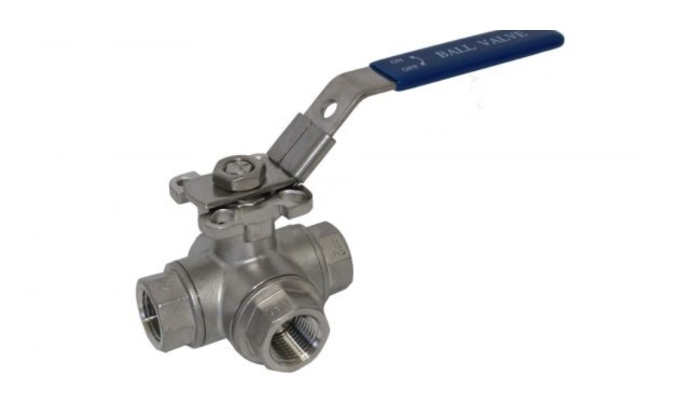Stainless steel is a versatile material suitable for a long list of industrial applications. It is easily customizable for all these applications. Stainless steel is an alloy primarily composed of iron, chromium, nickel, carbon, manganese, molybdenum, silicon, nitrogen, phosphorus (P) and sulfur (S).
Stainless steel 304 is one of the stainless steel alloys used because of its excellent corrosion resistance, formability and versatility. This alloy is specifically suitable for food and beverage industries.
What is Stainless Steel 304?
Stainless steel 304, also known as 18/8 stainless steel, is an austenitic alloy of steel that contains 18% chromium and 8% nickel, which gives it superior corrosion resistance. The chromium content forms a passive layer on the surface of the steel, protecting it from rust and oxidation. The nickel component adds toughness and enhances the material’s resistance to chemical reactions, making it suitable for various environments.
One of the key reasons stainless steel 304 is so widely used is its balance between cost and performance. It is less expensive than other stainless steel grades like 316, which contains molybdenum for extra corrosion resistance, yet it still offers excellent durability and workability.
Properties of Stainless Steel 304
Corrosion Resistance
Stainless steel 304 is resistant to corrosion in many environments, including acidic and chloride-containing solutions. This makes it ideal for applications where the material may be exposed to corrosive substances.
Strength and Durability
The material has a good balance of strength and ductility, making it suitable for forming and welding. It can withstand a wide range of temperatures and it does not lose its structural integrity.
Ease of Fabrication
Stainless steel 304 can be easily cut, welded, and fabricated into various shapes, including complex valve designs such as the stainless steel 3 way ball valve. Its machinability makes it a preferred choice for manufacturing components that require precision.
Hygiene and Cleanability
The smooth surface of stainless steel 304 makes it easy to clean and maintain, which is essential in applications like food processing and medical equipment where hygiene is critical.
Applications of Stainless Steel 304
Due to its versatile properties, stainless steel 304 is used in a broad range of applications, including:
Food and Beverage Industry
Stainless steel 304 is commonly used in equipment like tanks, piping, and kitchen appliances due to its corrosion resistance and ease of cleaning.
Chemical Processing
The material’s resistance to chemical reactions makes it ideal for use in environments where exposure to harsh chemicals is common.
Medical Devices
Its non-reactivity and ease of sterilization make stainless steel 304 suitable for medical instruments and implants.
Architectural Components
Stainless steel 304 is often used in building facades, railings, and other architectural features due to its aesthetic appeal and weather resistance.
Stainless Steel 304 in Valve Manufacturing
One of the critical applications of stainless steel 304 is in the manufacturing of valves, particularly the ball valve 3 way. A 3 way ball valve is a versatile component used to control the flow of liquids or gasses through a system. It has three ports, which can be configured in various ways to direct flow, mix fluids, or serve as a shutoff.
Stainless Steel 3 Way Ball Valve
The stainless steel 3 way ball valve is favored in many industries for its durability and corrosion resistance. The valve body is made from stainless steel 304, ensuring that it can withstand harsh conditions without corroding or deteriorating. This is particularly important in industries like chemical processing or water treatment, where the valve may be exposed to corrosive substances.
Durability
The use of stainless steel 304 ensures that the valve can endure high pressures and temperatures without compromising performance. This durability makes it a reliable choice for critical applications.
Corrosion Resistance
In environments where corrosion is a concern, such as in the food and beverage industry, the stainless steel 3 way ball valve offers long-lasting performance without the risk of rust or contamination.
Versatility
The ball valve 3 way design allows for various flow configurations, making it adaptable to different system requirements. Whether it’s used for mixing, diverting, or controlling the flow, the stainless steel construction ensures consistent performance.
Conclusion
Stainless steel 304 is a cornerstone material in industries that require durability, corrosion resistance, and hygiene. Its application in valve manufacturing, particularly in the production of the stainless steel 3 way ball valve, highlights its versatility and reliability. Whether in the food and beverage industry, chemical processing, or industrial applications, stainless steel 304 continues to be a preferred choice due to its balanced properties and cost-effectiveness.
When choosing materials for critical components like valves, the importance of selecting a material that offers both performance and longevity cannot be overstated. Stainless steel 304 meets these criteria, making it an indispensable material in modern engineering and manufacturing.
